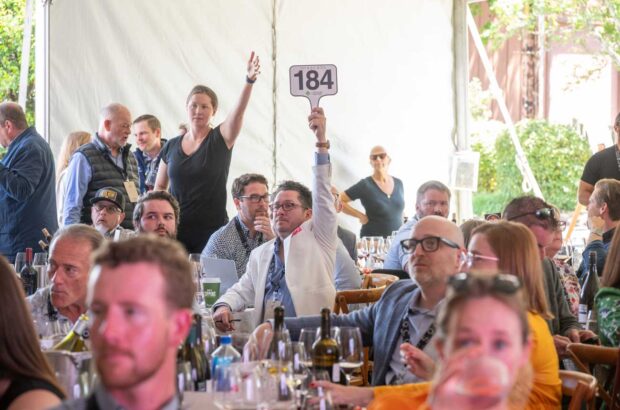Theresa May's speech on the UK's Brexit strategy filled in some blanks but left key questions unanswered for wine drinkers, workers, importers and retailers.
Prime minister Theresa May confirmed this week that the UK was willing to sacrifice membership of the EU single market and customs union in order to secure greater control over immigration and leave the jurisdiction of the European Court of Justice.
There have been warnings that the UK’s position in the global wine market could fundamentally change if the country leaves the European single market as a result of its Brexit vote.
The UK is the world’s second largest wine importer in volume and value – behind Germany and the US respectively – and 55% of UK wine imports come from the EU, according to the Wine & Spirit Trade Association (WSTA). Exports going the other way have risen by 156% in the past decade, including non-EU wine shipped to the UK for bottling.
Around 90% of the UK trade supported ‘remain’ because of single market access, according to a WSTA survey before last year’s referendum.
Others might point out that the UK has a long history of importing and drinking wine, transcending various political and economic climates.
Whichever way you voted, May’s speech initially felt like the yearned-for certainty after the phony war of ‘red, white and blue’ Brexit.
But, in terms of detail, it was actually pretty light. Key questions linger, and it could take some time to get solid answers.
While willing to leave the single market and customs union, May said that she still wanted a customs deal with EU member states that would allow goods to flow freely between UK ports and those on the continent.
Perhaps someone lost the sheet of paper containing the crucial detail on what such a deal might look like – because it wasn’t made clear.
Nor was the position of EU citizens currently living and working in the UK; a good number of whom are employed in the country’s restaurant and wine sectors.
May said that she wanted to sort this out as soon as possible, but there was no clarity on detail or timing. English wine producers, who rely strongly on EU vineyard workers at harvest time, have raised the issue as a concern.
Still, the UK government has been attempting to charm parts of the wine trade.
Chancellor Philip Hammond visited Accolade Wines last week, owner of Australian brand Hardys, to offer re-assurance.
There is a neat symmetry to this, because former exchequer secretary Damian Hinds visited Accolade’s large bottling plant in Bristol before last year’s EU referendum vote to warn that ‘leaving the EU could drain investment away from the UK’.
The WSTA, for its part, has said it is committed to engaging with the government to help find a deal that works.
It has also warned, with one eye on duty tax, that wine prices are likely to rise in the UK as a result of Brexit, partly due to a weaker pound sterling currency against the euro. The break-up could also affect non-EU wines if trade deals are not put in place quickly, the trade body said.
The pound rallied slightly after May’s speech, although it only recovered ground lost in the preceding days of foreboding.
Not all retailers are looking to raise prices in the short-term.
A Majestic Wine spokesperson told Decanter.com, ‘Majestic are not planning on any dramatic price rises in the near future. Price rises have mostly already come through in the market and the grand total has been microscopically small for the consumer.’
Majestic subsidiary Naked Wines did raise prices by about 5% on average late last year.
Some UK-based merchants trading internationally, such as BI – formerly Bordeaux Index – have even been enjoying stronger sales to US and Asia based wine buyers keen to take advantage of the weak pound. Might that continue with this year’s Bordeaux en primeur? Read Jane Anson’s excellent early analysis here.
May’s speech is the UK’s opening salvo.
A clearer picture on Brexit is not likely to emerge before some hard yards of Article 50 negotiation, also complicated by French and German elections this year.
Let’s at least hope we can avoid the pettiness of calls for Britons to boycott French wine, or – surely not – even Prosecco.
Related content:

Champagne makers blame Brexit for lower 2016 sales
Weaker demand in UK hits volumes, show initial figures...

Brexit means wine prices will rise, warns trade body
WSTA issues stark warning...

Brexit: UK to seek share of EU wine cellar – report
British officials want share of EU assets, says report...

‘Brexit boom’ as fine wine buyers seek lesser vintages
Liv-ex and BI report upturn in trading...

Anson: Here’s the Brexit reaction in Bordeaux
Find out what Bordeaux is thinking...







